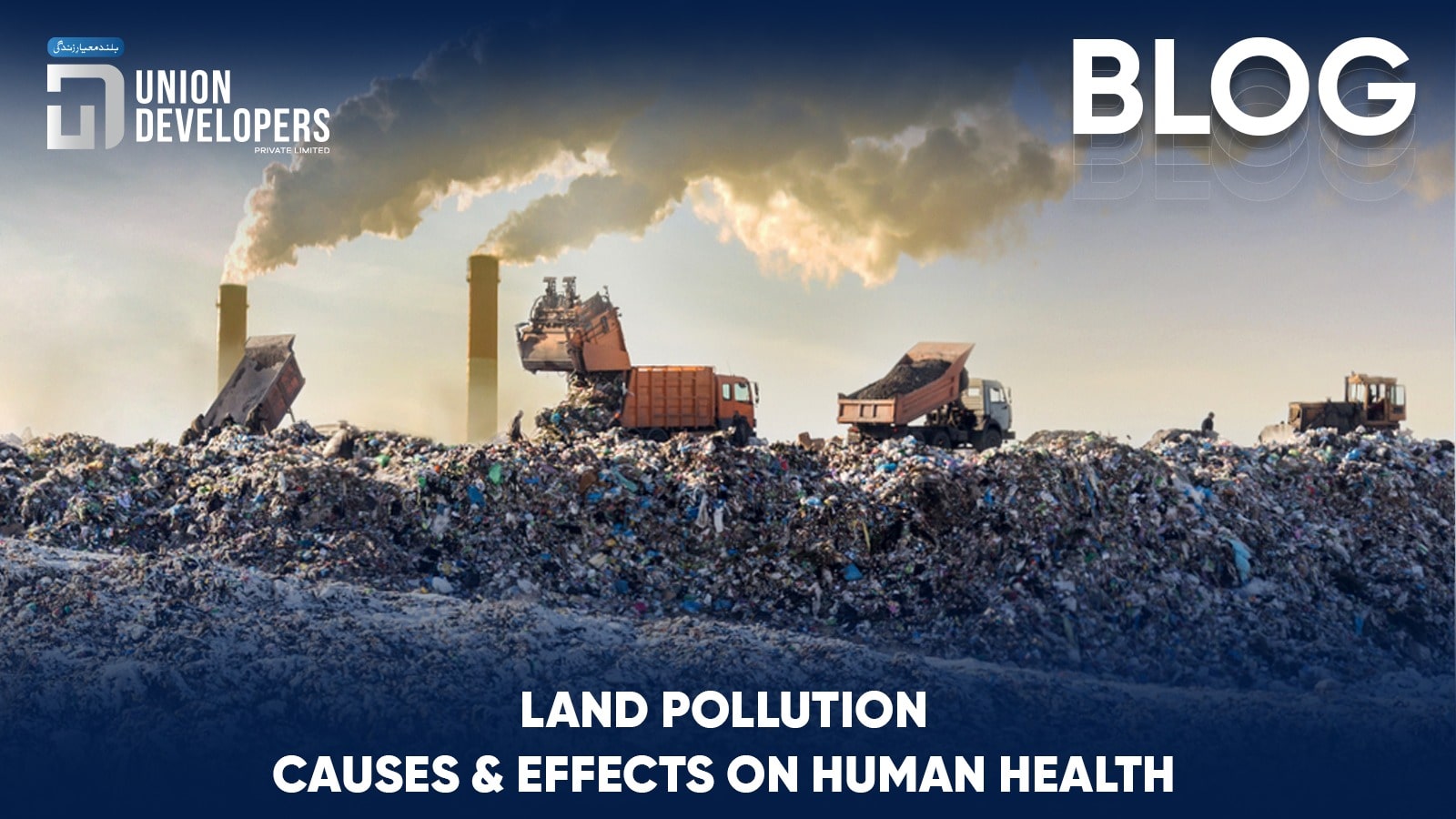Land pollution could be fatal for human bodies and create numerous health problems that can be distressing in many ways. People may consume toxic waste and contaminants that could be damaging to their well-being. Additionally, the disposal of hazardous radioactive materials worsens land contamination. Human health effects in many ways, including chronic respiratory illnesses, lung cancer, gastroenteritis, heart diseases and even neurological damage.
What is Land Pollution?
In a nutshell, land pollution is a threat to the earth. It can occur below and above the soil surfaces and is directly or indirectly caused by human activities. Definitly it involves the mismanagement of land resources and various forms of contamination, including chemical and biological pollutants. It turns the soil unhealthy for living beings and makes the land unfit for life on this planet. One of its major reason is the improper and illegal dumping of industrial waste into the agricultural land and open areas.
Causes of Land Pollution
There are countless reasons of land pollution, but mainly it includes waste management, urbanization, construction, mining and agriculture.
Industrial Activities: Heavy and large-scale industries release toxic chemicals and pollutants into the soil, contaminating large tracts of land. This matter is further worsened by inappropriate disposal of industrial waste, causing long-term damage to the ecosystem.
Improper Disposal of Waste: Improper disposal of domestic waste, including plastics, metal waste and non-biodegradable materials, contributes widely to land pollution. If it is not properly managed or disposed of, it will result in leaving harmful substances in the soil, causing contamination of groundwater and surrounding areas, hence effecting the environment.
Agricultural Practices: Extensive agricultural practices, such as the excessive use of chemical fertilizers and pesticides, lead to soil degradation and nutrient imbalance in the land. Due to deforestation and misuse of land mismanagement, large tracts of land become barren and vulnerable to pollution.
Urbanization and Construction: Swift urbanization and illegal construction projects have resulted in the reduction of green spaces and natural habitats. The high usage of concrete and asphalt decreases soil compaction capacity, resulting in soil erosion.
Mining Activities: The processing of coal, minerals or precious metals often leaves wastelands damaged by toxic chemicals and heavy metals. Improper methods of mining not only destroy the ecosystem but also pollute the surrounding atmosphere, including water and soil.
Effects of Land Pollution
Land pollution is affecting almost every area of the living world which includes; Let’s explore them.
Environmental Degradation: Rising graph of land pollution has badly shaken our ecosystem, leaving negative effects on biodiversity and also resulting in the destruction of natural habitats. Contaminated soils poorly affect the growth of plants and agricultural productivity, threatening food security and livelihoods.
Health Effects: Exposure to contaminated soil and groundwater, rapidly increasing serious health risks to human bodies and other living creatures on earth. Toxic chemicals and heavy metals in the soil has a trickle-down effect on the food supply system, causing chronic health issues such as respiratory illnesses, cancer and problems related to digestion system.
Economic Value: Land pollution reduces its economic value and potential for development. Property value of polluted lands and contaminated areas decline sharply as development and restoration costs increase, adding a burden to local residents and taxpayers.
Marine and Water Pollution: Terrestrial pollution not only affects the land but also contaminates water sources through runoff and leaching. Groundwater contamination threatens drinking water and aquatic ecosystems, causing widespread environmental impacts and waterborne diseases.
Climate Change: Soil degradation due to land pollution lessens the capacity of soil to store carbon. Additionally, the cutting down or burning of the forests results in the release of carbon which was stored by them. According to a UN report realised in 2018, deforestation has approximately increased 10 % greenhouse gases. Thus, it contributes to climate change by warming the atmosphere and destroying carbon sinks and wetlands, therefore constantly increasing global warming.
How to Prevent Earth from Land Pollution
Recognize the urgency of addressing land pollution and its impacts. The obligation towards sustainable development goes beyond housing to preserve the environment for future generations. Henceforth we need to adapt following practices:
Eco-Friendly Environment: From beginning to the end of any construction and development projects adhere to stringent environmental standards aimed at reducing land disturbance and encouraging environmentally friendly practices. By using green building materials, energy-efficient devices at construction sites and creating green spaces help in reducing carbon footprints.
Waste Management: By implementing proper waste management system to reduce waste generation and encourage recycling, we can create healthy environment. Through new technologies and community engagement, we can also reduce dependency on landfills and lessen the risk of soil contamination.
Ecosystem Restoration: Once, we all recognise the importance of biodiversity conservation, everyone will be actively participating in restoration of ecosystem and increase their efforts to rehabilitate degraded land and enhance ecological resilience. The goal is to create sustainable lands for humans and nature to grow and nurture the healthy environment for our generations to come.
Education and Awareness: Having a faith in the power of education and awareness to promote positive change in our societies: Through outreach programs, workshops and educational campaigns, we can empower individuals and communities to take an action against land degradation and adopt sustainable practices in daily routine.
Also Read: Sustainable Cities, Resilient Future
Conclusion
Land pollution and degradation has serious threats to our environment, health and economy. As responsible citizens, it is our moral duty to address this pressing issue and pave the way for a sustainable future. Through innovation, collaboration and teamwork, we can overcome the challenges of land pollution, create environmentally friendly communities and live in harmony with nature.




